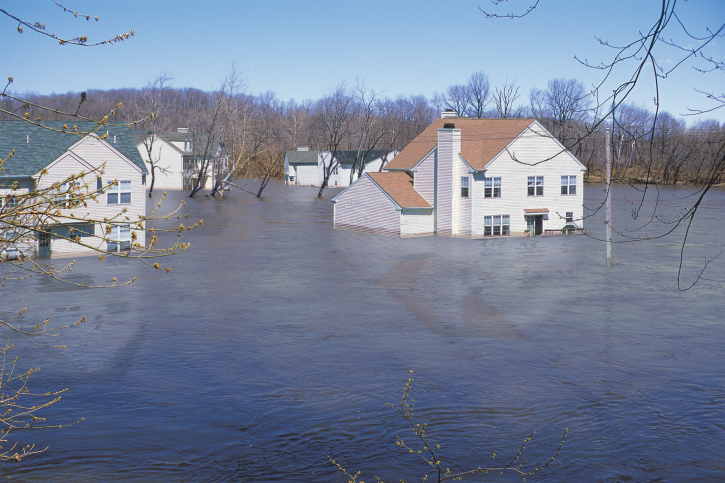 When you are going through the process of looking for a new home, you are probably focused on the sticker price of that home. Even though it is important to think about your down payment, your monthly mortgage payment, and the total amount of the loan, there are other expenses that you might need to cover as well. If you do not put down enough money, there is a chance that the lender could ask you to pay for something called private mortgage insurance. What is private mortgage insurance and how much do you have to pay? There are several important points that you should keep in mind.
When you are going through the process of looking for a new home, you are probably focused on the sticker price of that home. Even though it is important to think about your down payment, your monthly mortgage payment, and the total amount of the loan, there are other expenses that you might need to cover as well. If you do not put down enough money, there is a chance that the lender could ask you to pay for something called private mortgage insurance. What is private mortgage insurance and how much do you have to pay? There are several important points that you should keep in mind.
Why You Might Purchase PMI
Private mortgage insurance is something that the lender may ask you to purchase as a way to reduce their risk. If you do not make a sizable down payment, then the lender is responsible for funding most of the cost of your home. If you end up defaulting on the cost of that loan, the lender will lose a major amount of money. With PMI, the lender will be able to get his or her money back in the event that you default. Even though the exact cost of PMI will vary, you should expect to pay somewhere between 0.5 percent and 2 percent of the loan. You might be able to ask the lender to check with multiple options to find the least expensive policy possible for you. Once the PMI policy is instituted, this is something that you will have to pay on top of your monthly mortgage payment.
Avoiding PMI Payments
Importantly, there are ways that you can avoid PMI. You might be able to avoid this insurance policy altogether if you are able to increase the size of your down payment. If you cannot do that, the PMI policy will usually be canceled when you reach a certain threshold in equity. This is something that you should negotiate with the lender before you sign on the dotted line. In some cases, the PMI policy as waved when you reach 10 percent of the loan amount paid back. Even though you should check with a professional accountant, PMI is likely tax-deductible, similar to mortgage insurance.
 Many homeowners do not realize that the risk of a flood is a significant factor that plays a role in not only homeownership but also the closing process. Even though flooding is a major risk, many homeowners do not carry enough coverage. Without proper flood insurance, homeowners risk losing millions of dollars. Therefore, it is prudent for those who are looking for a home to factor flood insurance into their home search. This can streamline the closing process down the road.
Many homeowners do not realize that the risk of a flood is a significant factor that plays a role in not only homeownership but also the closing process. Even though flooding is a major risk, many homeowners do not carry enough coverage. Without proper flood insurance, homeowners risk losing millions of dollars. Therefore, it is prudent for those who are looking for a home to factor flood insurance into their home search. This can streamline the closing process down the road. For most people, their home is the most valuable investment they will ever make. Therefore, it needs to be protected. This is where homeowners’ insurance is critical. At the same time, buying the right amount of homeowners’ insurance can be a bit of a challenge.
For most people, their home is the most valuable investment they will ever make. Therefore, it needs to be protected. This is where homeowners’ insurance is critical. At the same time, buying the right amount of homeowners’ insurance can be a bit of a challenge. For those who are thinking about buying a house in the near future, they are probably in the process of tabulating up all of their expenses. One of the common expenses is home insurance. Even though home insurance is certainly recommended, is it actually required? There are many situations where it is required. At the same time, even when it is not required, it is still a good idea. When it comes to homeowners’ insurance, there are a few important points to keep in mind.
For those who are thinking about buying a house in the near future, they are probably in the process of tabulating up all of their expenses. One of the common expenses is home insurance. Even though home insurance is certainly recommended, is it actually required? There are many situations where it is required. At the same time, even when it is not required, it is still a good idea. When it comes to homeowners’ insurance, there are a few important points to keep in mind.  The COVID-19 pandemic has taken the world by storm. Millions of people all over the world have been infected and businesses have ground to a halt. During this time, it is important for everyone to take a breath, pause, and look at their insurance policies.
The COVID-19 pandemic has taken the world by storm. Millions of people all over the world have been infected and businesses have ground to a halt. During this time, it is important for everyone to take a breath, pause, and look at their insurance policies. You’ve got house insurance, and assume your property is covered for any type of detrimental occurrence that can possibly take place.
You’ve got house insurance, and assume your property is covered for any type of detrimental occurrence that can possibly take place.